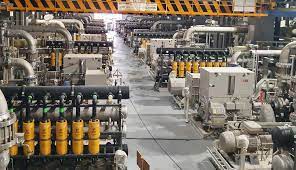
Breaking News
 Boston Dynamics' Atlas just did a roundoff back handspring… yeah we're cooked
Boston Dynamics' Atlas just did a roundoff back handspring… yeah we're cooked
 It's Not Just Pakistan - Foreigners from Around the World Who Are Not US Citizens...
It's Not Just Pakistan - Foreigners from Around the World Who Are Not US Citizens...
 Elon Musk's Darkest Secret - Dr. Eric Weinstein
Elon Musk's Darkest Secret - Dr. Eric Weinstein
 Puerto Rico's Rep. Rivera Turned The Halftime Show Into an Anti-ICE Rant (VIDEO)
Puerto Rico's Rep. Rivera Turned The Halftime Show Into an Anti-ICE Rant (VIDEO)
Top Tech News
 SpaceX Authorized to Increase High Speed Internet Download Speeds 5X Through 2026
SpaceX Authorized to Increase High Speed Internet Download Speeds 5X Through 2026
 Space AI is the Key to the Technological Singularity
Space AI is the Key to the Technological Singularity
 Velocitor X-1 eVTOL could be beating the traffic in just a year
Velocitor X-1 eVTOL could be beating the traffic in just a year
 Starlink smasher? China claims world's best high-powered microwave weapon
Starlink smasher? China claims world's best high-powered microwave weapon
 Wood scraps turn 'useless' desert sand into concrete
Wood scraps turn 'useless' desert sand into concrete
 Let's Do a Detailed Review of Zorin -- Is This Good for Ex-Windows Users?
Let's Do a Detailed Review of Zorin -- Is This Good for Ex-Windows Users?
 The World's First Sodium-Ion Battery EV Is A Winter Range Monster
The World's First Sodium-Ion Battery EV Is A Winter Range Monster
 China's CATL 5C Battery Breakthrough will Make Most Combustion Engine Vehicles OBSOLETE
China's CATL 5C Battery Breakthrough will Make Most Combustion Engine Vehicles OBSOLETE
 Study Shows Vaporizing E-Waste Makes it Easy to Recover Precious Metals at 13-Times Lower Costs
Study Shows Vaporizing E-Waste Makes it Easy to Recover Precious Metals at 13-Times Lower Costs
Report: LG Energy Solution Developing LFP Batteries

LG Chem's LG Energy Solution is expected to expand its EV battery offer with the LFP (lithium iron phosphate) lithium-ion chemistry (the oldest one), which is gaining popularity again.
So far, LG Energy Solution was focused on the NCM (nickel, cobalt, manganese) cathode chemistry and new NCMA (nickel, cobalt, manganese and aluminum) to achieve the best energy density and reduce the cobalt content to keep costs under control.
According to The Elec, the company has realized that the LFP chemistry also has business potential despite its lower energy density, because it's cobalt- and nickel-free, less expensive and considered safe. Recently, Tesla introduced the LFP battery option in the U.S.
We can only guess that developments were triggered by the customer inquiries as well as observations on how well the CATL and BYD are progressing - the energy density of the cells improved to a decent level, affordability is very important in the mass market, and the cell-to-pack design makes LFP a very competitive option.

 Smart dust technology...
Smart dust technology...

